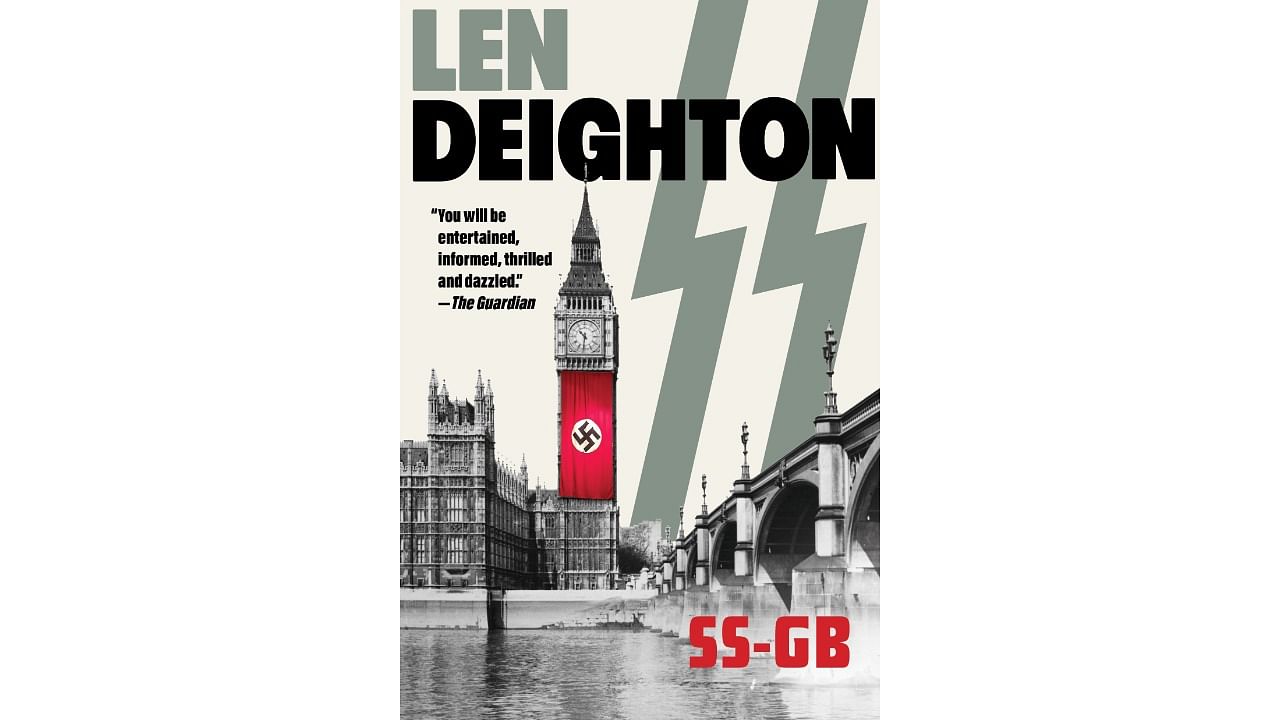
SS-GB
Credit: Special Arrangement
The London that we are plunged into in Len Deighton’s SS-GB is grim, grey and painful. In this world, the Nazis under Hitler have defeated Britain in February 1941. Buckingham Palace is a bombed-out ruin, The King is in the Tower of London, Winston Churchill has apparently been executed and Scotland Yard detectives cooperate with the SS and the Gestapo.
Alternative histories have long been a rewarding concept for skilled writers to use as a portal to worlds that never existed and timelines that never happened. Deighton is one of many authors such as Philip K Dick who also tried to imagine what would have happened if the Axis powers had prevailed in the Second World War.
In SS-GB, which was published in 1978, the reader follows Detective Superintendent Douglas Archer as he tries to solve a murder that has taken place in a Mayfair flat nine months after the Nazis have taken over Britain. His new bosses are part of the SS and while the start of the book promises a noir-ish police procedural in a cold and austere London where German is as commonly heard as English, it soon turns into something murkier with the arrival of shadowy resistance figures and American spies masquerading as journalists.
Archer himself has suffered losses in the Blitz with his wife killed when a bomb dropped on their house. He and his son now board with Mrs Sheehan whose husband is a POW in a camp in Germany. Archer would rather keep his head down and do his job, and as the story begins, he refuses to be drawn into the various games that are underway between his superiors, competing factions of the Nazi state machinery, and those trying to get help from Britain’s erstwhile allies. Add in some missing atomic research, dead scientists, and informants in every nook and cranny, and you have quite the slow-burning powder keg of a plot.
Deighton’s first spy novel that made his reputation as a master of the espionage genre was The Ipcress File, published in 1962. He was also well-known for his food writing for The Observer. Before gaining fame as an author of spy thrillers, he’d served in the RAF, studied at the Royal College of Art and worked as an illustrator in the advertising industry.
His works — SS-GB included — take time to set up the characters and their motivations. These are not your usual breathless, guns-and-explosions-filled, gadget-strewn spy stories. There’s a deep and thoughtful intelligence to the world Deighton builds in SS-GB, with the acute insight that not all empires can function smoothly with so many power players trying to get a leg up in the system. There’s no gung-ho ending here, but an awareness that in wars and negotiations, there has to be a certain sequence in which the dominos fall before you get the result you want.
It’s not just Deighton’s plotting and characterisation that you admire, but the ability to show, in bracingly clear prose, the futility of individual efforts against a vast array of world powers that seem hell-bent on driving the world towards destruction. By the time you finish SS-GB, you are sure of one thing: wild as it may seem, there are circumstances that could render a king and emperor as helpless as a policeman on a foggy London street.
The author is a writer and communications professional. When she’s not reading, writing or watching cat videos, she can be found on Instagram @saudha_k where she posts about reading, writing, and cats.
That One Book is a fortnightly column that does exactly what it says — it takes up one great classic and tells you why it is (still) great.